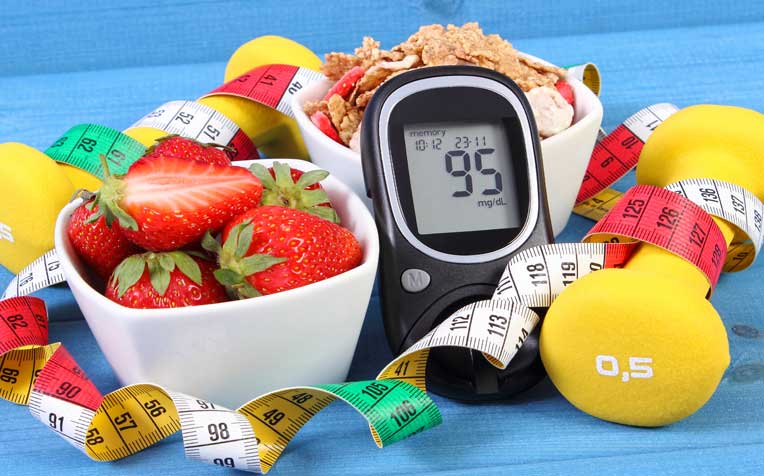1. DAFNE empowers type 1 diabetes patients to manage their condition and regain control over their diet.
2. The program teaches patients to match insulin doses to their food choices, rather than following strict meal plans.
3. DAFNE includes training on carbohydrate counting for local foods and handling various lifestyle situations.

DAFNE (Dose Adjustment for Normal Eating) programme aims to help Type 1 diabetes patients monitor their blood sugar levels.
DAFNE programme helps people with type 1 diabetes regain control over their diet
What makes DAFNE (short for "Dose Adjustment for Normal Eating") differ from older methods of controlling type 1 diabetes is that it empowers patients to manage their condition. The DAFNE programme underscores the trend of a more patient-centric (as opposed to physician- or disease-directed) management style, which is particularly necessary when it comes to coping with long-term chronic diseases.
“When they have a chronic disease like type 1 diabetes, often patients, especially those who have been diagnosed in childhood or their teens, feel like the control is taken away from them. Somebody else is telling them what to do, how much insulin to take, and (telling them) a lot of ‘nos’ and ‘cannots’,” said Dr Goh Su Yen, Senior Consultant and Head for the Department of Endocrinology at Singapore General Hospital (SGH), a member of the SingHealth group.
“Every single second of the day, they are living with diabetes. Everything can affect their blood sugar. The underlying principle of DAFNE is that we want to hand control back to diabetes' patients. This is their life,” she said.
Dr Goh had led a small team to Melbourne to be trained on the DAFNE programme. When they returned to Singapore, the team members worked on modifying the programme to suit the Singapore context. For example, they found that diabetic patients in Singapore may be more insulin-sensitive than previously thought and, thus, did not need as much insulin as their peers globally.
“Eat what you like. Like what you eat.” That’s the mantra of the DAFNE programme at SGH, the first of its kind in Asia. Before, patients took nutritional dictates from their doctors who might prescribe meal plans aimed at maintaining glucose levels and matching regimented insulin dosage, with little gastronomic flexibility.
The DAFNE programme imparts skills that people with type 1 diabetes need to match their insulin dosage to, whatever they eat, whenever they want to eat. It also teaches patients how to deal with sick days and low-sugar situations, how to exercise safely and effectively, and how to handle drinking and dancing in social settings.
Counting carbs
Classes have been held at SGH since the DAFNE programme began in 2011. Each class, which teaches a set curriculum over five full days (spread out over weekends and public holidays), allows for up to eight participants.
The group setting is aimed at encouraging participants to share and compare experiences. Even after the intensive course is over, the group members stay in touch with regular reviews.
For now, the DAFNE class, which has support from pharmaceutical giant Sanofi-Aventis Singapore as well as Abbott Diagnostics for glucometers (for home glucose monitoring), is free for SGH patients.
As with programmes launched in other countries, the SGH programme is tailored to the local population and foods found in Singapore.
A big part of the programme is teaching patients how to calculate the amount of carbohydrates they will consume. Teaching materials include pictures of full plate servings of hawker centre favourites such as char kway teow and laksa, as well as models of common fruits and vegetables.
Dietitians teach patients how to calculate the amount of carbohydrates that different foods have, so they can figure out how much insulin they need to inject themselves with. Participants are encouraged to keep weighing scales handy until they get used to accurately eyeballing the carbs in their meals.
WE WANT TO HEAR FROM YOU!
Do you have Type 1 diabetes (and are above 21-years-old) or have a child with Type 1 diabetes?
Hit this link to take part in the Type 1 Diabetes Technology Survey, conducted by Singapore General Hospital (SGH). Help us to understand the level of awareness and satisfaction with diabetes-related technology in Singapore.
Ref: T12
Contributed by


















 Get it on Google Play
Get it on Google Play